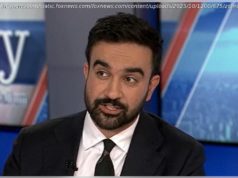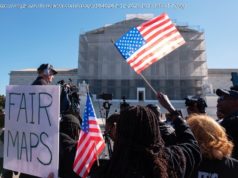Memorial Day, for politicians, is a no-brainer. You express thanks to those who have served and condolences for those who have been lost. That’s it. That’s the statement.
„Happy Memorial Day! Those who died for our great country would be very happy and proud at how well our country is doing today. Best economy in decades, lowest unemployment numbers for Blacks and Hispanics EVER (& women in 18years), rebuilding our Military and so much more. Nice!“
This is a tweet about Trump masquerading as a tweet about Memorial Day. The remembrance of those who fell in service to the country is used here by Trump as simply a launching pad to tout accomplishments during his first 16 months in office.
Need evidence? Ask yourself if those who died for the country did so while thinking about the current unemployment rate. Or how a family mourning someone lost fighting for the United States today would react when the President ends a tweet allegedly honoring their service with this: „Nice!“
Compare Trump’s tweet to how other politicians handled Memorial Day.
Here’s South Carolina GOP Sen. Lindsey Graham’s tweet: „On #MemorialDay we honor the American heroes who made the ultimate sacrifice defending our values and protecting our freedoms. We owe them a debt of gratitude we can never repay.“
And here’s what former President Barack Obama said via Twitter: „We can never truly repay the debt we owe our fallen heroes. But we can remember them, honor their sacrifice, and affirm in our own lives those enduring ideals of justice, equality, and opportunity for which generations of Americans have given that last full measure of devotion.“
There are dozens (and dozens) more of these sorts of tweets and statements. And not one of them sounds anything like what Trump wrote.
Remember that phrase „There’s a time and place for everything“? Trump seems not to have that gene in him — or to listen to people who do. Anyone — and I mean ANYONE — who Trump ran that tweet by before sending it would tell him that it sounds incredibly self-serving, far too focused on himself and what he’s done as opposed to what today means for the country.
But as the past 16 months has shown, Trump rarely consults with people before he tweets. He feels as though he innately understands Twitter — that it is the medium best suited for him to communicate to the millions and millions of people who not only voted for him but also „get“ him at some core level.
Maybe that group of core Trump supporters think today’s tweet is a good idea, though it’s difficult to see how.
The tweet seems reflective of a broader belief that has animated every moment of Trump’s campaign and presidency: This is about him. Period.
„Nobody knows the system better than me, which is why I alone can fix it,“ Trump said in accepting the Republican nomination back in 2016. I alone can fix it.
Attorney General Jeff Sessions‘ decision to recuse himself in the Russia probe? „Very unfair to the President,“ Trump told The New York Times last summer.
Me, I, me. I did this. I deserve credit. This is unfair to me. Soldiers fought and died so I could make the unemployment rate better. And so on.
Trump’s total lack of understanding of how past presidents have prioritized the collective good of the country over their own personal aggrandizement or self -promotion represents one of the most consequential breaks with history embodied in Trump.
Trump is the „me“ President, not the „we“ President. And that is a profound change in how politicians — Democrats and Republicans — have conceived of the office they hold.






